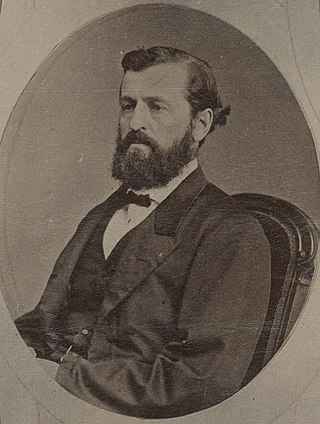
The premier of South Australia is the head of government in the state of South Australia, Australia. The Government of South Australia follows the Westminster system, with a Parliament of South Australia acting as the legislature. The premier is appointed by the governor of South Australia, and by modern convention holds office by virtue of their ability to command the support of a majority of members of the lower house of Parliament, the House of Assembly.

The South Australian House of Assembly is one of the two chambers of the Parliament of South Australia, the other being the Legislative Council. It sits in Parliament House in the state capital, Adelaide.

The Parliament of South Australia is the bicameral legislature of the Australian state of South Australia. It consists of the 47-seat House of Assembly and the 22-seat Legislative Council. General elections are held every 4 years, with all of the lower house and half of the upper house filled at each election. It follows a Westminster system of parliamentary government with the executive branch required to both sit in parliament and hold the confidence of the House of Assembly. The parliament is based at Parliament House on North Terrace in the state capital of Adelaide.

Sir James Penn Boucaut (;) was a South Australian politician and Australian judge. He was a member of the South Australian House of Assembly on four occasions: from 1861 to 1862 for City of Adelaide, from 1865 to 1870 for West Adelaide (1865–1868) and The Burra (1868–1870), from 1871 to 1878 for West Torrens (1871–1875) and Encounter Bay (1875–1878), and a final stint in Encounter Bay in 1878.

The Leader of the Opposition in South Australia is the leader of the largest minority political party or coalition of parties, known as the Opposition, in the House of Assembly of the Parliament of South Australia. By convention, the leader of the opposition is a member of the House of Assembly. The leader acts as the public face of the opposition, and acts as a chief critic of the government and ultimately attempt to portray the opposition as a feasible alternate government. They are also given certain additional rights under parliamentary standing orders, such as extended time limits for speeches. Should the opposition win an election, the Leader of the Opposition will be nominated to become the Premier of South Australia.

Colonial elections were held in South Australia from 9 April to 23 April 1890. All 54 seats in the South Australian House of Assembly were up for election.

The 1893 South Australian colonial election was held on 15 April 1893 to elect all 54 seats in the South Australian House of Assembly.
Wallaroo is a defunct electoral district that elected members to the House of Assembly, the lower house of the bicameral legislature of the Australian state of South Australia. It was established in 1875 and abolished in 1970.
The Finniss ministry was the 1st Ministry of the Government of South Australia, led by B. T. Finniss. It commenced on 24 October 1856 with the introduction of responsible government in South Australia, and the nomination by Governor Richard Graves MacDonnell of Finniss, the appointed Chief Secretary, as the first Premier of South Australia. The ministry operated for several months prior to the 1857 colonial election, which would elect the first House of Assembly. The first House of Assembly was elected in March 1857 and met in April. The Finniss ministry was succeeded by the Baker ministry on 21 August 1857, following their defeat on a confidence motion in the new House.
Colonial elections were held in South Australia on 9 March 1857. All 36 seats in the South Australian House of Assembly, and all 18 seats in the Legislative Council were up for election.
Colonial elections were held in South Australia from 19 March to 21 April 1887. All 52 seats in the South Australian House of Assembly were up for election.
Colonial elections were held in South Australia from 8 April to 23 April 1884. All 52 seats in the South Australian House of Assembly were up for election.
Colonial elections were held in South Australia from 8 April to 27 April 1881. All 46 seats in the South Australian House of Assembly were up for election, along with six of the 18 seats in the South Australian Legislative Council.
Colonial elections were held in South Australia from 10 February to 1 March 1875. All 46 seats in the South Australian House of Assembly were up for election.
Colonial elections were held in South Australia from 14 December to 27 December 1871. All 36 seats in the South Australian House of Assembly were up for election.
Colonial elections were held in South Australia from 28 March to 21 April 1870. All 36 seats in the South Australian House of Assembly were up for election.
Colonial elections were held in South Australia from 6 April to 7 May 1868. All 36 seats in the South Australian House of Assembly were up for election.
Colonial elections were held in South Australia from 20 February to 13 March 1865. All 36 seats in the South Australian House of Assembly were up for election.
Colonial elections were held in South Australia from 10 November to 28 November 1862. All 36 seats in the South Australian House of Assembly were up for election.
Colonial elections were held in South Australia from 9 March to 3 April 1860. All 36 seats in the South Australian House of Assembly were up for election.





